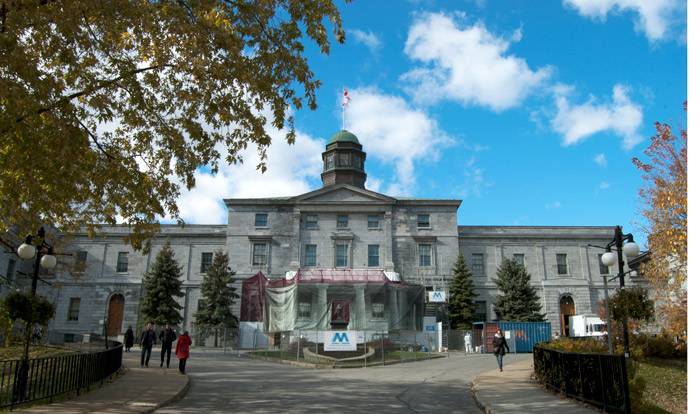Taking a break is beneficial and often necessary for maintaining mental health. A rising number of Canadian universities are acknowledging this in their academic calendars by implementing a Fall reading week. With strenuous midterms, shorter days, and overburdened on-campus support services, McGill students need a Fall break to improve their well-being and academic success.
In November 2015, the Students’ Society of McGill University (SSMU) proposed a Fall reading week, but failed to implement it because of administrative concerns, including, according to former Vice-President (VP) University Affairs Chloe Rourke, “aversion to change” and apprehension about student benefits from the break. Further, outdated tradition has placed constraints on how the McGill calendar is set. Currently, the calendar follows Senate guidelines that are still based off of year-long courses, meaning they’re not structured with Fall midterms in mind. In April 2015, an Enrolment Services survey of 5,000 students found that 71.5 per cent of respondents were in favour of having a Fall reading break. Later that year, SSMU passed a motion in support of the break.
Although efforts have been made to find a way to accommodate a Fall break through calendar restructuring, administrative barriers are not a sufficient excuse. The momentum behind creating another break must continue to grow, in order to give students the aid they require as immediately as possible—ideally by next year. For every bureaucratic speed bump blocking the path to implementing a Fall reading week, there are countless students whose participation in their education is diminished by burnout.
Students would benefit massively from an additional break. As one of Canada’s top schools, McGill is known for its rigorous academic programmes. This hard-working atmosphere is intense year-round, but reaches alarming peaks during midterm season—when stress and exhaustion can ignite mental health challenges for students. McGill Health Services has even reported an increased demand for mental health support in October and November. Unfortunately, the spiking demand means longer waitlists and delayed assistance for those who need it most. Despite these critical issues and evident student support for an additional break, the university has yet to update the calendar.
With rising demand for mental health services, other Canadian universities have moved to adopt Fall breaks for their weary students. Today, 61 per cent of universities nation-wide incorporate rest days into Fall semester. At the University of Alberta, for example, officials implemented a post-midterm break to alleviate pressure on students whose mental wellness had been strained during the arduous assessments. Mount Royal University in Calgary—another school that has recently designated a Fall break—believes the time off offers students experiencing challenges in their studies the opportunity to seek academic aid at a time that’s early enough in the semester to course correct—a reassurance that lessens students’ mental burdens.
At Western University, implementation of a first-semester break arose from more than just student petitioning and a concern for mental health on campus—it was a response to crises. After two high-profile suicides, the Senate finally heard what students had been saying for years—that they needed a break—and added a week off in October.
Tragedy cannot be the only way to incite a response. McGill’s mission to advance learning and offer the best possible education is not obtainable for students when they are unable to manage their studies alongside their mental health. Administrators must recognize concerns about overwhelming student stress and face facts about deteriorating wellness during midterms. This means working through bureaucratic barriers to implement a restructured academic calendar with a Fall reading week sooner, rather than later.
McGill needs to support students during stressful periods; not just through on-campus support, but through thoughtful restructuring of their academic experience to allow students time to catch up on work and rest. McGill cannot wait for tragedy to occur—it should take action now.










Those of us in Information Studies (at least the master’s program, not sure about the PhD students; we don’t have undergrads) get an unofficial Reading Week just before mid-terms, so after Thanksgiving we don’t have class for the rest of the week. Yes, it means we have one less week of class, but we still cover all material and we’re better off mentally with a week of no class to do projects and study for midterms (in some cases way from Montreal/McGill because we can actually go further away, which we couldn’t do over only the Thanksgiving weekend).